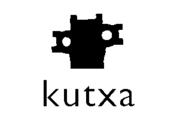Kutxa
 |
|
| Industry | Financial services |
|---|---|
| Founded | 1990 |
| Headquarters | San Sebastián, Basque Autonomous Community, Spain |
|
Key people
|
Xabier Iturbe (Chairman) |
| Products | Banking, insurance |
| Website | www.kutxa.net |
|
Footnotes / references BIC/SWIFT code: CGGKES22 (up to 2014) |
|
The Kutxa (pronounced [ˈkutʃa]; short for Basque: Gipuzkoa Donostia Kutxa "Savings Bank of Gipuzkoa and San Sebastián") is a savings bank mainly operating within a regional scope in the Gipuzkoa province of Spain. Its Spanish name is Caja de Ahorros y Monte de Piedad de Gipuzkoa y San Sebastián but it was re-branded as Kutxa. On 1 January 2012 it merged with other Basque financial entities (a "loose merger"), Bilbao Bizkaia Kutxa (BBK) and Caja Vital Kutxa, to form Kutxabank.
Kutxa, like the rest of Basque savings banks, was founded in the years following the definite loss of the charters (1876) in the middle of growing industrial development and new business opportunities. It constitutes a financial entity with entrenched roots in the social and economic fabric of Gipuzkoa, featuring an intricate system of management and internal control organs:
The origins of Kutxa go back to 1879, when the ‘’Caja de Ahorros y Monte de Piedad Municipal de San Sebastián’’ was founded in the city of San Sebastián with a view to providing credit for business. In 1896 the ‘’Caja de Ahorros Provincial de Guipúzcoa’’ followed. In 1990 both entities merged into a single savings bank, hereafter known by the commercial name of Kutxa. In 2006 it had 128 offices in Gipuzkoa, where it was the first financial entity, and some other 145 offices out of this territory. It then commenced a steady expansion period. Its staff amounted in 2006 to above 2,500 employees. However, since the eruption of the economic crisis (2008) and the savings banks’ merger, Kutxa has undergone a restructuring, cutting down significantly the amount and distribution of Kutxa branches.
The move to form Kutxabank in 2012 did not result in a full-blown merger. Instead the management boards of each savings bank opted to keep their own identity and certain autonomy, a decision coming in for strong objections led by circles close to the Basque nationalist left, who initially opposed any convergences but eventually advocated for a complete merger.
...
Wikipedia
